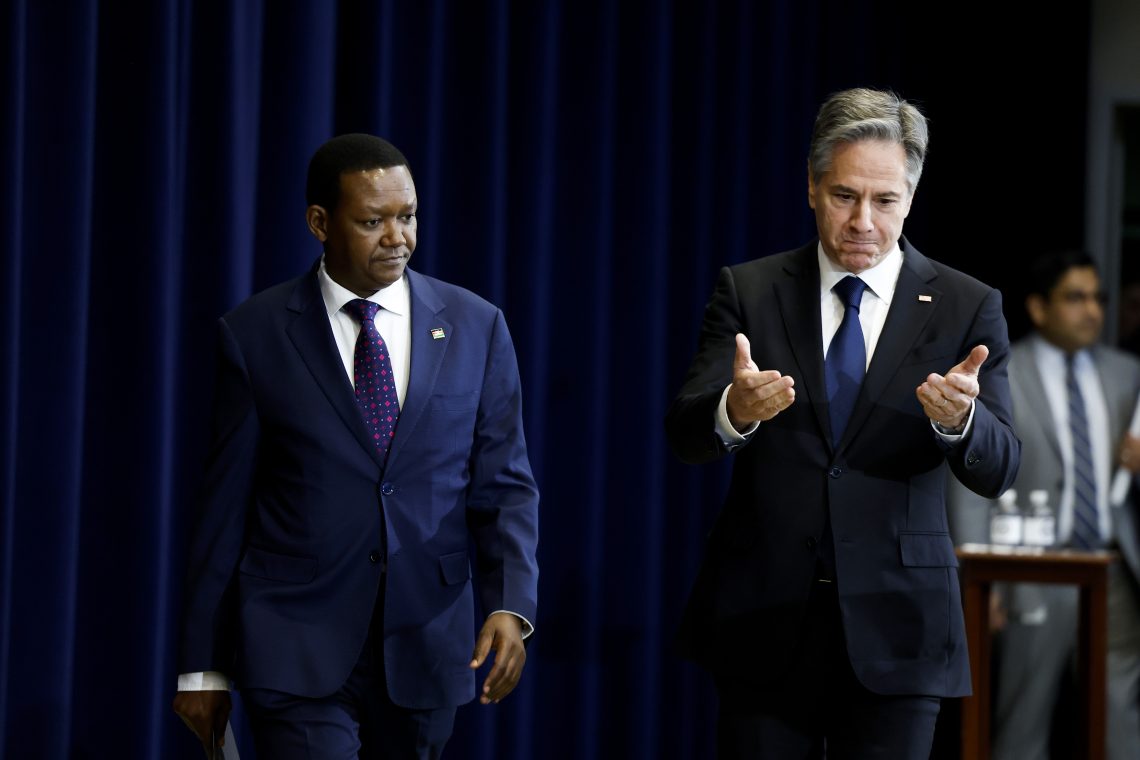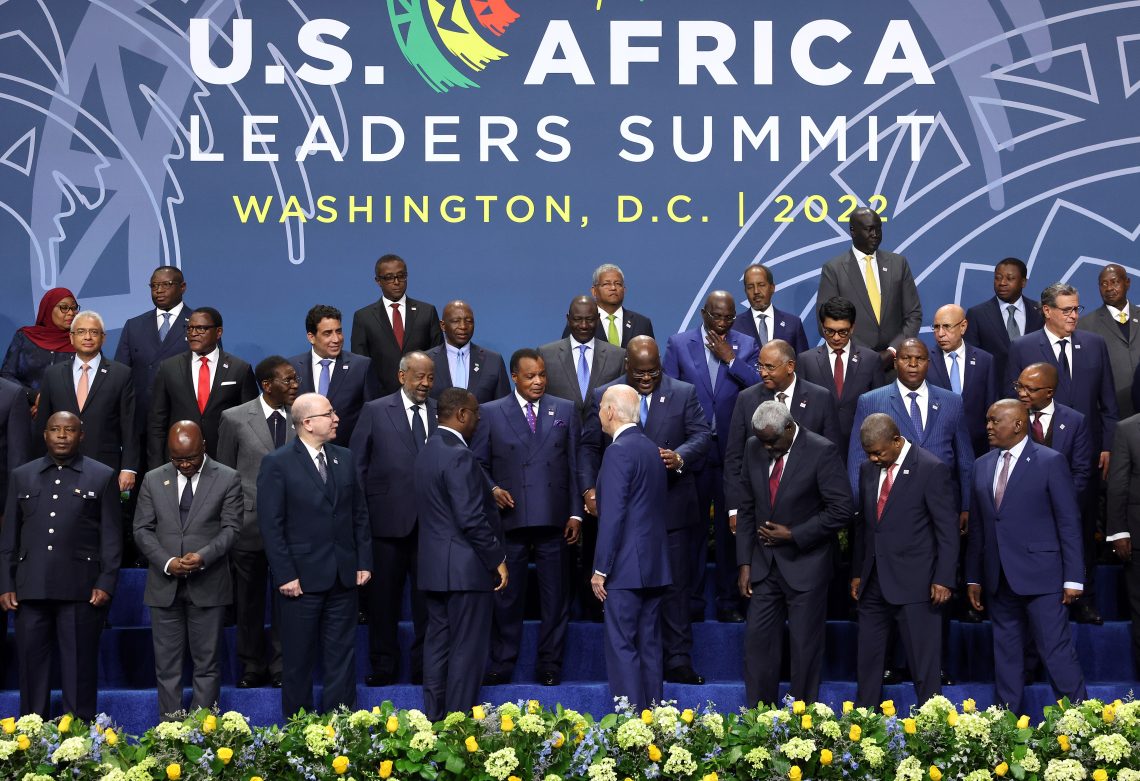U.S.-Africa policy adrift
The recent coup in Niger has underlined U.S. policy gaps in Africa. Despite aid and counterterrorism efforts, Chinese and Russian influences are growing.

The events in Niger highlight the ineffectiveness of United States policy in Africa. Since the U.S. has limited interests on the continent, however, these setbacks are unlikely to significantly affect actions from Washington. With impending national elections, the administration will neither be interested in accepting additional risk or undertaking new major commitments. The U.S. strategy will be to muddle through in the near term.
View from Washington
While the U.S. has no vital interests in Africa, Washington does consider engagement on the continent important. Since the September 2001 terrorist attacks, the U.S. has paid particular attention to supporting counterterrorism operations and aiding efforts to combat violent extremism. In 2007, the U.S. government established Africa Command (AFRICOM) in Germany as a regional headquarters to oversee U.S. military forces and regional military assistance. The primary focus of AFRICOM has been building local capacity to counter armed Islamist extremist groups.
In addition, the U.S. has always sought to play an active role in humanitarian assistance, economic development and improving the capacity and quality of governance. For instance, established in 2003, the U.S. President’s Emergency Plan for AIDS Relief (PEPFAR) has disbursed over $100 billion in combating the disease, mostly in Africa.
Over the last decade, the U.S. has become increasingly concerned about the growing malicious influence of Russian and Chinese activity on the continent. Russian mercenaries, the Wagner group, have been involved in numerous criminal and violent activities. China is aggressively expanding its presence in several African countries. The U.S. is concerned about the destabilizing impact of Chinese activity including exacerbating debt and fostering corruption. In addition, the U.S. has national security concerns, such as China’s efforts to establish a naval presence on the Atlantic coast of Africa, including in Equatorial Guinea and Namibia.
Strategy of the Biden administration
Africa received superficial treatment in the U.S. national security strategy published last year. The administration also released a strategy for sub-Saharan Africa. Both are layered with domestic political objectives (such as elevating the priority of climate change policy). Washington also issued a revised Strategy to Prevent Conflict and Promote Stability, adding a 10-year strategic plan for West Africa (plus Haiti, Libya, Mozambique and Papua New Guinea) in March 2023 to create counterterrorism partnerships, with applicability to Niger and broader Sahel security.
The strategies are formulated vaguely and have little regard for the significant regional differences on the continent. While they support encouraging private sector investment and cooperative action with allies in Europe, the Middle East and the Indo-Pacific, there are no specific policies implementing new initiatives. The documents emphasize “partnering” but do little to address issues of governance that limit the effectiveness of many regional powers.

In practice, U.S. foreign policy mimics other strategies prioritizing the “green agenda” and social policies such as abortion and gender, which have little positive impact in Africa.
America on the ground
As the developments in Niger illustrate, U.S. measures in Africa are underperforming. Despite having a significant presence in the country, for instance, Washington had no situational awareness that predicted the events. In fact, only months ago, U.S. Secretary of State Antony Blinken called Niger “a model of resilience, a model of democracy, a model of cooperation.” This was the seventh coup in Africa since 2020.
Further, despite the massive U.S. counterterrorism aid, according to a recent independent study, extremist activity in Africa has mushroomed over the last six months. Eighty percent of the violence is in the Sahel (where Niger is located).
Help us tailor GIS to your needs
Your insights are invaluable to us. Please share your thoughts to help us improve.
Meanwhile, U.S. aid continues to marginally affect economic development and advancement of civil society. According to a recent report from the United Nations, “Economic growth of Africa is estimated to weaken to 3.8 percent in 2023 from 4.1 percent in 2022 due to subdued investment and falling exports.” Irregular migration remains a significant and endemic challenge, particularly from West to North Africa. Hunger in North Africa is at crisis levels, affecting over 36 million people.
The Biden administration has had no significant successes in countering Chinese or Russian influence. China’s presence in Africa is extensive. According to research by the U.S. House Committee on Foreign Affairs, “China is now Africa’s biggest trading partner, with Sino-African trade topping $200 billion per year. Over 10,000 Chinese firms are currently operating throughout the African continent.” China’s economic presence in Africa is four times greater than that of the U.S. In addition to seeking resources, export markets, and political and diplomatic influence, Beijing is providing arms to African nations, increasingly offering professional military education. With a military base in Djibouti, it is also seeking other basing options on the continent.
More by James Jay Carafano
America’s response to the Global South
The future of U.S.-Turkey relations
Russia has long had significant influence in Libya, and primarily through the Wagner group has an active presence in several countries. Recently, Moscow has tried to leverage this influence with several countries, including South Africa, to marshal support for its war against Ukraine.
The humanitarian-development complex
U.S. assistance to Africa is significant. In 2022, for example, USAID disbursed over $6 billion in assistance. Most U.S. assistance and programs are funneled through contracts with international nongovernmental organizations (NGOs). Many, as a matter of principle refrain from coordinating their activities with national interests, maintain that “neutrality” is an essential operating practice, and insist on working autonomously from indigenous and foreign governments. In addition, the NGOs prioritize their mission and agenda in their work.
There has been scant, if any, effort to reform assistance delivery to deliver better performance or outcomes.
Global partners
The U.S. does have like-minded friends and allies who share an interest in countering destabilizing influences in Africa. In 2022, Washington hosted a U.S.-Africa Leaders Summit and in 2023 participated in the U.S.-African Business Leaders Summit in Botswana. Yet, the real U.S. strength in Africa is with key strategically relevant bilateral relationships, such as Egypt, Morocco, Kenya, Ghana and Nigeria.
Several U.S. allies in the Middle East have a strong presence and influence in the region including Israel, Turkey and the UAE.
The European Union and some European nations place particular emphasis on African regional policies. France has suffered significant reversals in its influence, particularly in Mali and Niger. The new Italian government recently proposed initiating a “Mattei Plan.” The anticipated plan envisions an international cooperative effort aimed at, in the words of one Italian Member of Parliament, “giving back to Africa its dignity,” through the development of its energy and other resources.
Indo-Pacific partners and allies also have a significant footprint and influence in Africa, particularly India and Japan. India, for instance, recently sought to bolster its role in Africa, proposing that the African Union be admitted as a member of the G20. Both India and Japan are focused on countering Chinese influence on the continent.
The U.S., however, has no effective integrated mechanisms to coordinate its actions with other powers seeking a stable and prosperous Africa.
Scenarios
The most likely scenario is that in the near term, significant shifts in U.S. Africa policy are improbable. The recent events in Niger are unlikely to serve as a wake-up call for the Biden team. The administration’s hope is that the junta collapses and Niger moves out of the news cycle. Further, while the U.S. would like to work more closely with friendly countries, members of the international community often have conflicting interests. France and Italy, for example, have contradictory approaches to dealing with illegal migration from Africa. The administration lacks the determination to seek to address the disagreements that inhibit harmonizing a multinational effort. The administration is content to continue with an African strategy that largely reflects its domestic political agenda, a course pleasing to its political supporters.
In the longer term, this policy is likely unsustainable given the challenges posed, particularly by China and the dramatic demographic growth predicted in Africa in the years ahead. A future administration, regardless of which party triumphs in the 2024 national elections, will have to adopt a more collaborative effort with friends and allies, since separately none have sufficient weight and influence to significantly impact future developments in any region in Africa.
U.S. policy will likely shift from countering terrorism and climate change to economic and diplomatic engagement.
In any scenario, health policy will be an important component of U.S. policy, though the emphasis will likely differ for Republicans and Democrats.








